|
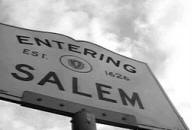 It is generally hard to trace the history of witches, since it is so
diverse. So many cultures practice some form of witchcraft. The name may
be different, but it is still based on the principles of using magic to
influence events. Ancient healers and shamans do much what witches, or
wiccans do. They use various herbs and oils or other concoctions in
conjunction with a ritual to positively influence a specific person or
event. It is generally hard to trace the history of witches, since it is so
diverse. So many cultures practice some form of witchcraft. The name may
be different, but it is still based on the principles of using magic to
influence events. Ancient healers and shamans do much what witches, or
wiccans do. They use various herbs and oils or other concoctions in
conjunction with a ritual to positively influence a specific person or
event.
To pinpoint a specific history of witches
or witchcraft is easiest to visit the times when society began its
persecution of the witch. It occurred at several different times and in
several different places. The persecution is well-known as the great
witch-hunts. As the name suggests, a witch-hunt was the search for
witches, or ghastly_tales_for_adults.htm who practiced magic. Whether the intent of the magic
was good or bad, if you practiced it or were associated with it, you
were considered evil and to be either imprisoned or executed. It was
mass hysteria and a form of lynching, but was considered official and
legally sanctioned.
The classical period of witch-hunts began
in Europe around 1450 and continued through mid-1700. It resulted in
tens of thousands of executions. It was called The Burning Times.
The Burning Times
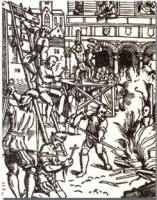 The Burning Times is a modern
term for the historical time when thousands of witches were tortured and
killed for suspected heresy. The Catholic Church wanted to purify the
witch's soul and believed burning them alive would do the trick.
Burning at the stake was just one of the methods to eradicate and
save these witches. However, burning was not the only means for
purification. In England & America, witches were hung and drowned. In
France, Scotland & Germany, they were pressed to death or strangled. The Burning Times is a modern
term for the historical time when thousands of witches were tortured and
killed for suspected heresy. The Catholic Church wanted to purify the
witch's soul and believed burning them alive would do the trick.
Burning at the stake was just one of the methods to eradicate and
save these witches. However, burning was not the only means for
purification. In England & America, witches were hung and drowned. In
France, Scotland & Germany, they were pressed to death or strangled.
Some have attributed the witch-hysteria
to St. Augustine, who proclaimed that pagans, Jews, and heretics would
forever burn in hell unless saved by the Catholic church. At the time,
Christians were flourishing but they also noticed that their fellow man,
many whom were still Pagans, were flourishing in their own rite. Since
the fear of differences can elicit paranoid fear, Pagans or witches were
targeted. Thus, the witch craze turned into widespread hysteria. If
someone was even suspected of the benign act of owning a cat, they could
and would be suspected of being a witch.
Propaganda
also fueled the fire. In 1484, Pope Innocent the VIII instructed two
Dominion monks to publish a manual for witch-hunters. This manual was
called, Malleus malificarum - The Witches' Hammer. The
Church used for the next 250 years to put a final end to Paganism, or
the Old Religion.
For a more
in-depth reading about the history of the European Witch Hunts:




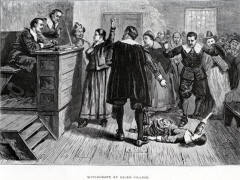 The Salem Witch Trials The Salem Witch Trials
Spanning from
1692 to 1693, the Salem Witch Trials, though not long in length,
was a witch hunt that yielded numerous people accused and imprisoned.
And of course, deaths. A total of twenty deaths were attributed to the
witch-hunts: 19 by hanging and one by being pressed to death.
Set in the
small towns of Salem Village and Salem Town, Massachusetts, the
witch-hunts toward the tail end of The Burning Times. The
Puritans of the New World were deeply religious and devout Christians
and very patriarchal. Thus, the fear of Paganism scared and
threatened their way of life. Like during The Burning Times, innocent
acts or even physical attributions like an unfortunate wart on the nose
could set off an alarm that you were a witch - you could be seriously
tried, imprisoned or even killed for it.
It is thought
that the Salem Witch Trials began by the unlikable Reverend Samuel
Parris, minister of the Puritan town of Salem Village. Parris had
hired a slave couple from Barbados - John and Tituba - to
care for his daughter, Betty and his niece Abigail Williams. The couple
brought their customary voodoo to Puritanical Salem Village. Soon many
of the village girls became fascinated with voodoo magic.
Strange
things then began to happen. The girls suffered fits of hysteria, they
made strange noises, contorted their bodies and crawled into holes. The
two girls, Betty and Abigail began to suffer severe epileptic fits. They
screamed, threw things about, uttered strange sounds, crawled under
furniture, and contorted their bodies. When the Reverend would give his
sermons, Betty and Abigail covered their ears.
A local
doctor, William Griggs, attended to the "afflicted" girls, and
was the first to suggest that witchcraft may be the cause of their
afflictions.
Soon their
behavior seemed to spread. In fits of hysteria, the afflicted would
cry out the names of the witches who were supposedly tormenting
them. Those who were "cried out against" were then accused of practicing
witchcraft and consorting with the devil. Thus, the interrogations,
trials and subsequent imprisonment and some executions followed.
Most of the
evidence used against the accused was "spectral evidence," or the
testimony of the afflicted who claimed to see the apparition or the
shape of the person who was allegedly afflicting them. And this was
going to be the eventual downfall of the trials.
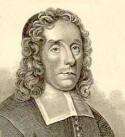 The
Reverend Francis Dane saw something very wrong with these witch
trials. He supported the accused. He petitioned the Governor and Court
condemning the trials due to unfounded accusations. He was soon to be
supported by Increase Mather who wrote in Cases of Conscience
Concerning Evil Spirits, "It were better that Ten Suspected Witches
should escape, than that one Innocent Person should be Condemned." So it
was in May of 1693, after one final trial that all those in jail accused
of witchcraft were set free in May of 1693. The
Reverend Francis Dane saw something very wrong with these witch
trials. He supported the accused. He petitioned the Governor and Court
condemning the trials due to unfounded accusations. He was soon to be
supported by Increase Mather who wrote in Cases of Conscience
Concerning Evil Spirits, "It were better that Ten Suspected Witches
should escape, than that one Innocent Person should be Condemned." So it
was in May of 1693, after one final trial that all those in jail accused
of witchcraft were set free in May of 1693.
Interestingly, it is thought that hallucinations from "ergot poisoning,"
found in the bacteria of contaminated flour used to bake bread caused
the initial peculiar behavior of Betty Parris and Abigail Williams.
For further
fascinating, in-depth reading about the Salem Witch Trials:
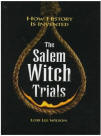



^ back to top
Sources:
Witches &
Witchcraft by Rosemary Ellen Guiley
http://members.aol.com/runes3/burn.htm
|

